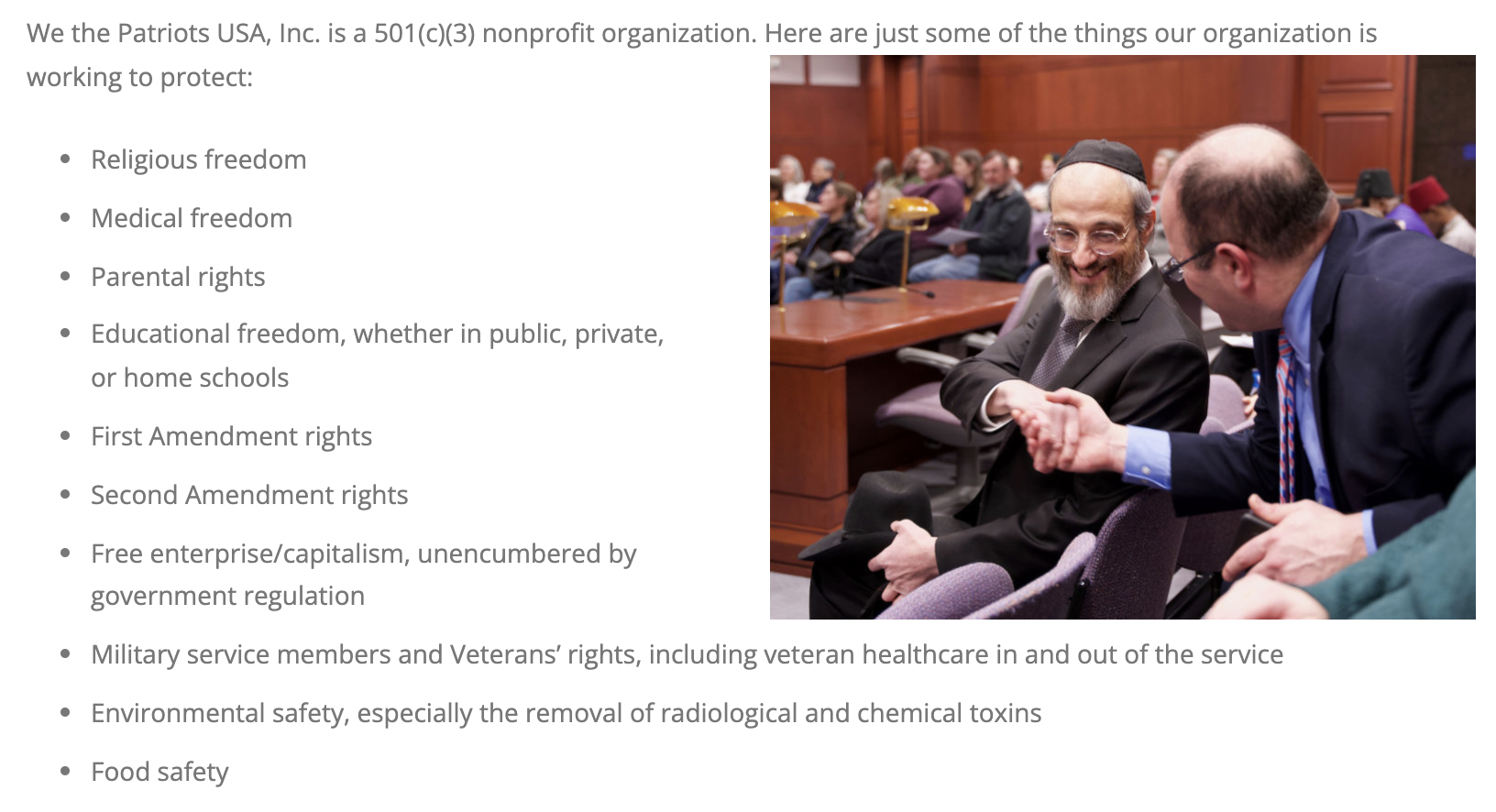Marine Corps veteran, William Salier and his wife Karla, who were dangerously ill with COVID-19, recovered quickly after desperately improvising using Ivermectin horse paste. Two pharmacies had refused to fill a prescription for the Saliers for Ivermectin meant for humans. UncoverDC reported on the alleged assault on Ivermectin on Oct. 21, 2021.
The Saliers filed a 22-page lawsuit against Walmart and HY-VEE in the United States District Court in Minnesota on Jan. 13, 2022. Attorney Cameron Atkinson (Of Counsel for WTP USA, Inc.) and Attorney Marjorie Holsten, local counsel in Minnesota, are litigating the case.
We The Patriots, USA, a 5019(c)(3) non-profit, fully funded the lawsuit. William Salier, 53, became deathly ill on Oct. 1, 2021, with the virus. While Salier's condition was "steadily worsening," the lawsuit states, "he was not sick enough" for the clinic in Osage, Iowa, to treat him with monoclonal antibodies, and the clinic needed to prioritize treatment because of the short supply. The doctor at the clinic also declined to prescribe Ivermectin. In an Oct. 18 interview with Steve Deace, Salier tells his story. The interview can be heard here, beginning at the 34-minute mark. Deace helped Salier contact Dr. James, the doctor who ultimately prescribed Ivermectin. The telehealth appointment with Missouri physician Dr. Mollie James, who had "successfully treated countless COVID-19 patients," resulted in a prescription for "several treatments including Ivermectin." James felt strongly he was on "the verge of requiring intensive care unit treatment, which would leave him with less than 50 percent chance of survival unless he received treatment immediately." However, as has been the case for many Americans, neither the Walmart pharmacy in Alber Lea, Minnesota nor the pharmacy at the Hy-Vee supermarket would honor the doctor's prescription. Karla also fell ill and her prescriptions for Ivermectin and Hydroxychloroquine also went unfilled. The Walmart pharmacist allegedly not only refused to fill the prescription but "attempted to lecture Dr. James about how she was imperiling the Saliers' health. He then hung up on her." Hy-Vee's pharmacist told the Saliers that it "was its corporate policy to refuse Ivermectin and Hydroxychloroquine prescriptions to treat COVID-19." According to his doctor, William's illness was life-threatening, and he faced a tough choice that required him to improvise. The case continues: "Relying on his farming experience, he and Karla purchased the veterinary version of Ivermectin—a tube of horse paste with Ivermectin as its only ingredient. After calculating the appropriate dosage," according to Dr. James' guidance, he and his wife began to consume the medication. The lawsuit explains their swift recovery: "Within 24 hours of regularly consuming Ivermectin horse paste, Salier and his wife noticed a rapid and significant improvement in their conditions. After a week of consistently self-treating themselves with Ivermectin horse paste, both had recovered sufficiently to resume their normal activities with some moderate limitations. After two weeks, both had resumed their normal lives." Neither one experienced "any negative health problems from Dr. James' prescriptions." The lawsuit argues, with accompanying data, the common use of off-label drugs like Ivermectin and Hydroxychloroquine for illnesses as prescribed by a doctor. Doctors, the case argues, should be allowed to execute their clinical judgment when prescribing medications. The lawsuit also provides ample data and many well-sourced news articles, citing the FDA's full approval of Ivermectin "as a safe drug in 1996, and the World Health Organization includes it on its list of Essential Medicines." Count one in the case speaks to the right to self-determination, meaning—adults should have a right to determine "what shall be done with his own body." Walmart, the lawsuit argues, provided no "reasonable or scientific basis for declining to fill the prescription" for Ivermectin, forcing him to "improvise with a version intended for horses, not humans, to save his own life." Self-determination is cited in common law in the state of Minnesota, per the lawsuit. The lawsuit also argues the infliction of emotional stress and tortious interference with contractual relations between the Saliers and their doctor. In other words, neither pharmacy was correct to interfere with the contract between Dr. James and the Saliers to "lawfully prescribe her medicine from pharmacies that she could not obtain otherwise." Salier, during his interview with Deace, commented on the miraculous turnaround in his health once he took the Ivermectin paste, stating that eight hours later, he "started to feel the turn around in [his] body." However, he argued that he should have been able to take the medications, meant for humans, prescribed by his doctor. Salier told Deace he would fight fiercely to win the case: "I will tell you there as one final thought, my friend. If you ever wanted to find out what it is to punch a Marine in the face and what type of response you're going to get—well America you're about to see the type of response you get. Because what you did to me and my family—and you stand between our physician and the health care that they have prescribed to me as a life-saving thing? In my opinion, that is what it did then you got a fight on your hands and I am coming for that fight."
 We The Patriots, USA
We The Patriots, USA William Salier, Karla Salier v. Walmart, Inc.; HY-VEE, Inc.
William Salier, Karla Salier v. Walmart, Inc.; HY-VEE, Inc.


